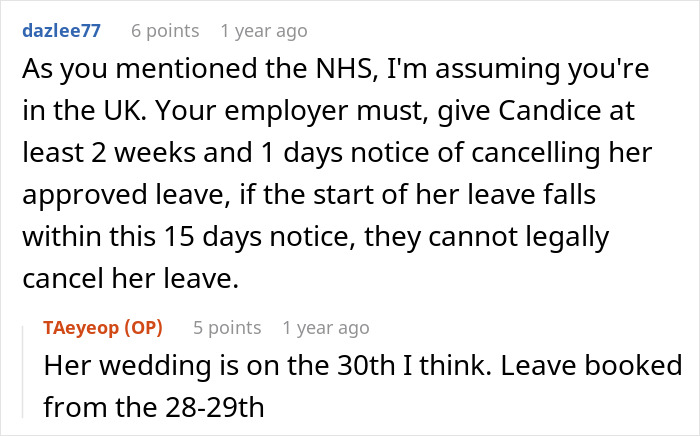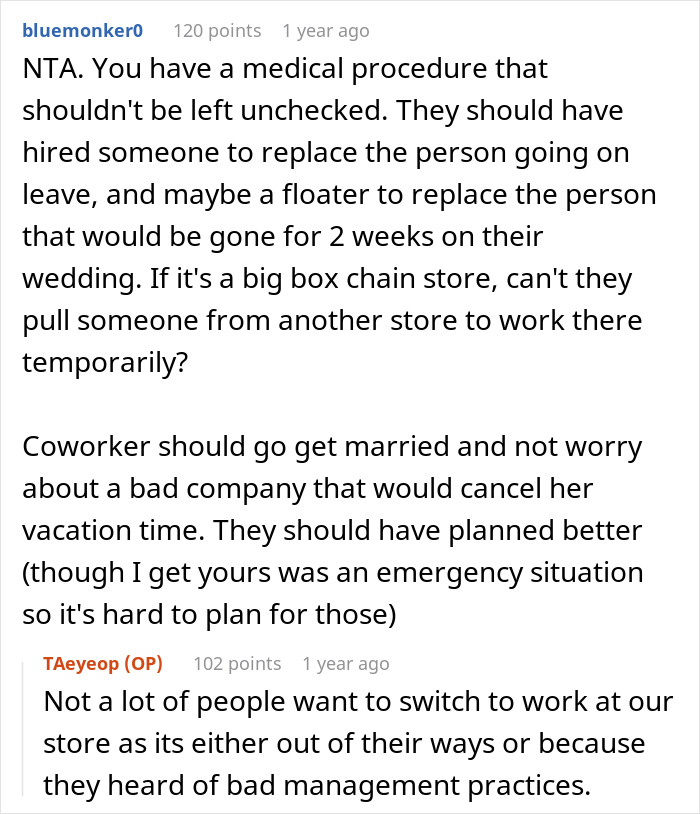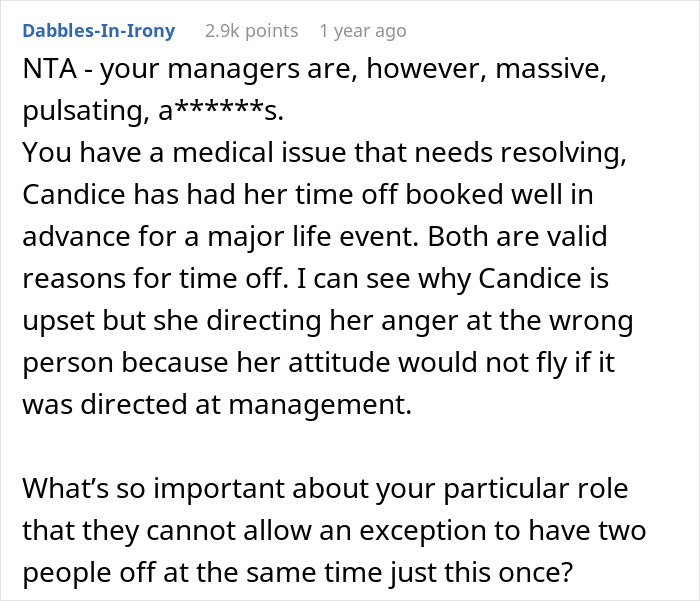Taking time off work is usually exciting. Perhaps you’re planning an exotic vacation abroad or visiting family members that you only get to see a few times a year. But sometimes, time off is a necessity. Having health issues and needing an operation isn’t exactly my idea of fun, but it does require some days off.
But according to one boss, only one employee is allowed to be away from work at a time, regardless of the circumstances. Below, you’ll find the story that was shared on the “Am I the [Jerk]?” subreddit detailing how a bride became furious at another colleague for unintentionally stealing her days off, as well as a conversation with Ekta Capoor, Best-Practices Evangelist and Co-founder of Amazing Workplaces®.
This person’s boss has a strict policy allowing only one employee off at a time

Image credits: Karolina Grabowska / Pexels (not the actual photo)
So a bride was furious to find out that her time off had been revoked due to this colleague’s surgery

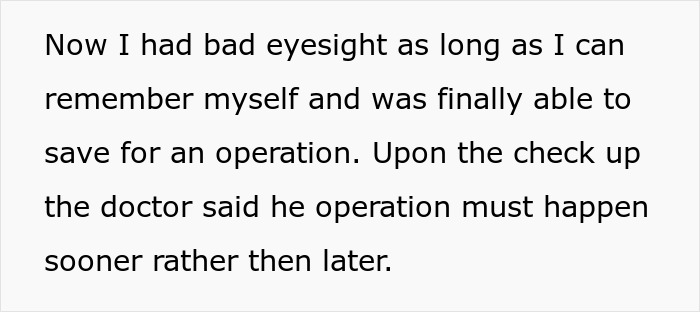
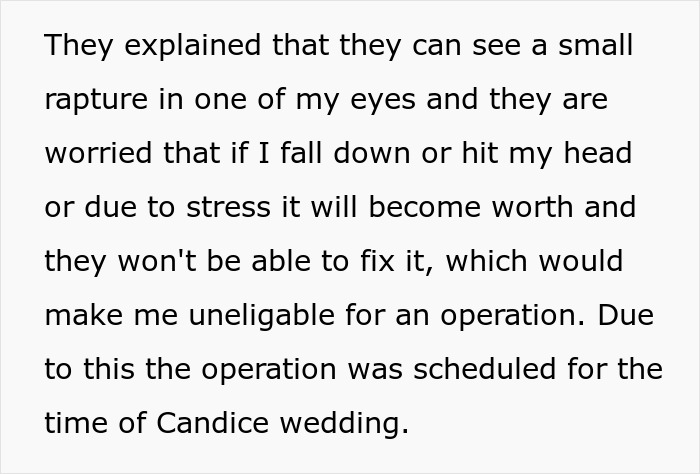

Image credits: Cedric Fauntleroy / Pexels (not the actual photo)
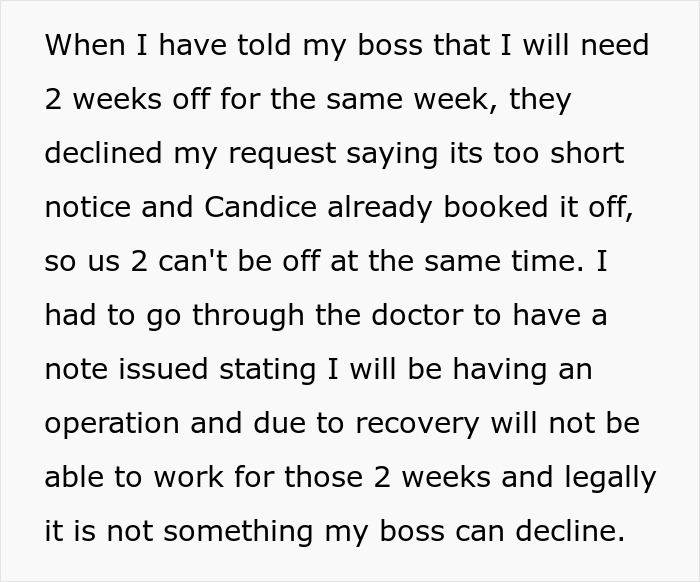
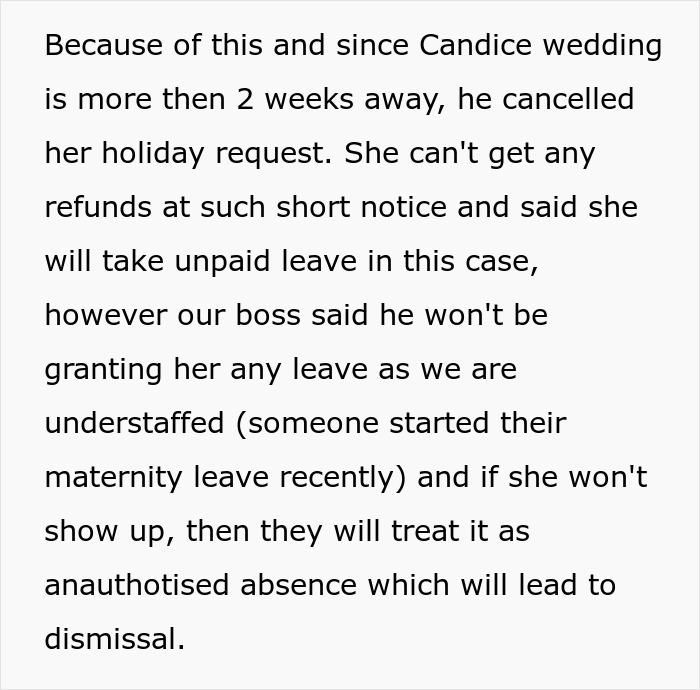

Image credits: Liza Summer / Pexels (not the actual photo)
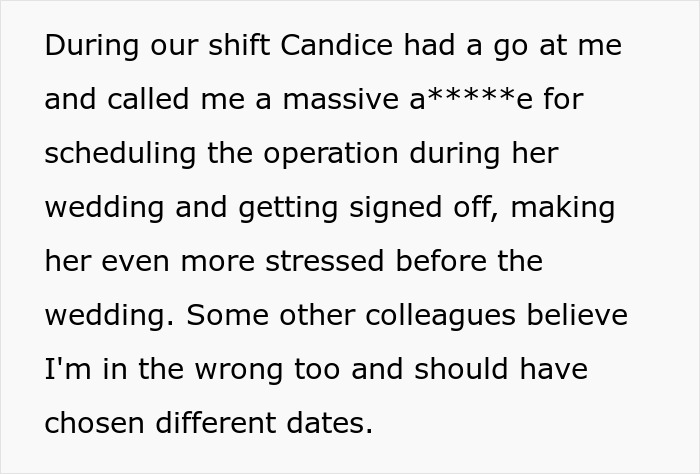
Later, the employee clarified some more details about the situation
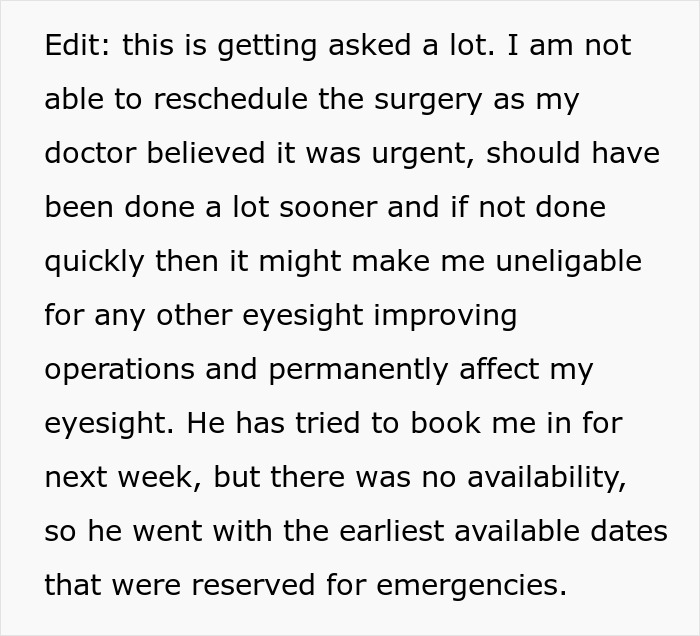
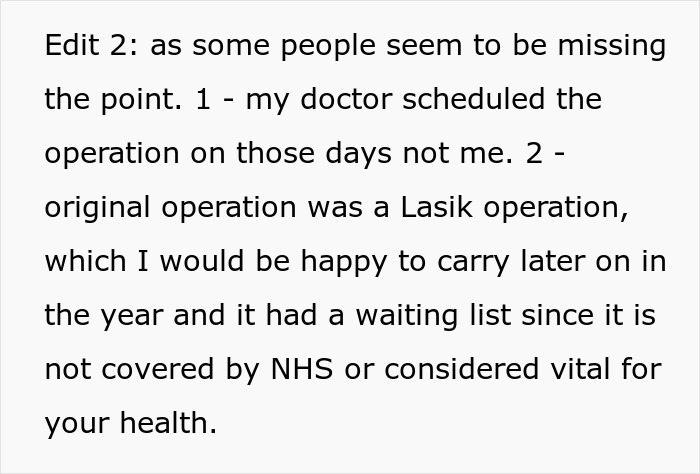
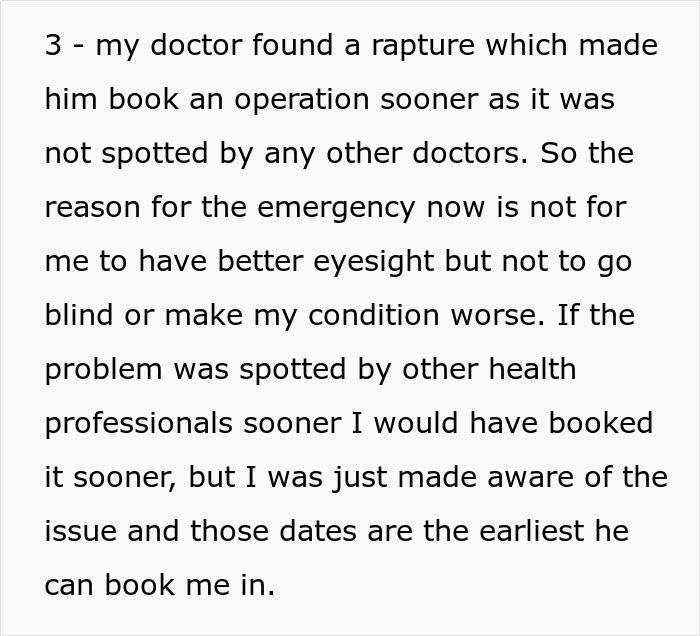
Image credits: TAeyeop

Image credits: Mateusz Dach / Pexels (not the actual photo)
Employees in the UK are entitled to 5.6 weeks of vacation every year
It often feels like no matter how many days off your employer will give you, it’s never enough. We all want to go on vacation now and then, we’re bound to get sick at least once a year, and it’s important to take days off for rest and relaxation every now and then. Before you know it, you’ve used up all of your days for the entire year, and you have to be extremely careful not to need any more time off until you can accumulate more days.
This particular story takes place in the UK, where most employees are legally entitled to 5.6 weeks of paid holiday each year, according to the UK government. In theory, employees should be able to use these days whenever they would like. And when it comes to medical appointments, Acas notes that there is “no legal right to time off work” to go to the doctor. But employers do have a “duty of care.”
Employers are obligated to do everything they can, within reason, to ensure their employees are safe, healthy and that their wellbeing is protected at work. It’s recommended for bosses to be flexible about time off when it comes to medical appointments because it’s crucial for their staff to take care of their health, and this can even reduce sickness absence in the future.

Image credits: Christina Morillo / Pexels (not the actual photo)
“Companies should strive for fair vacation scheduling practices that consider workload, team needs, and employee requests”
To gain more insight on this topic, we reached out to Ekta Capoor, Best-Practices Evangelist and Co-founder of Amazing Workplaces®. Ekta was kind enough to have a chat with Bored Panda about this situation, as she’s a “big believer in creating positive and productive work environments.”
“Generally, once vacation days are approved, employers shouldn’t revoke them unless there are truly exceptional circumstances,” the expert shared. “Ideally, such situations would be discussed well in advance with the employee to find a mutually agreeable solution. However, some companies might have policies allowing limited rescheduling under extreme circumstances (e.g., sudden natural disaster impacting operations).”
We were also curious about how realistic it is for companies to allow only one employee to be gone at a time. “Some smaller companies might have a policy where only one team member can be off at a time,” Ekta noted. “While this can help maintain essential staffing, it can also lead to inflexibility and employee frustration. Ideally, companies should strive for fair vacation scheduling practices that consider workload, team needs, and employee requests.”

Image credits: nappy / Pexels (not the actual photo)
“Encouraging open communication about planned absences allows for proactive scheduling and reduces last-minute conflicts”
While this situation is understandably frustrating for the bride, Ekta shared a few options that she can consider. First, she noted that it might be wise to negotiate with her manager. “Perhaps she can adjust her wedding date slightly (if feasible), work remotely during some of her vacation, or offer to find alternative coverage within the team,” the expert says.
The bride might also consider reviewing the company’s vacation policy for any relevant clauses regarding cancellations. But if all else fails, it might be time to consider alternative solutions “such as rescheduling the honeymoon (if possible) or even exploring other job opportunities after the wedding (depending on the severity of the situation and her overall job satisfaction),” Ekta says.
“At Amazing Workplaces®, we advocate for open communication and employee well-being,” Ekta added. “Ideally, companies should have transparent vacation policies and strive to accommodate employee requests whenever possible. Encouraging open communication about planned absences allows for proactive scheduling and reduces last-minute conflicts. This situation highlights the importance of clear communication and flexible vacation policies. Hopefully, the bride can find a solution that works for her and her employer.”
We would love to hear your thoughts on this situation in the comments below, pandas. Do you think this employee did anything wrong by taking time off for their surgery? Feel free to share, and then if you’re interested in reading another Bored Panda article discussing similar themes, look no further than right here!
The employee responded to comments from readers to provide more info on the situation as well
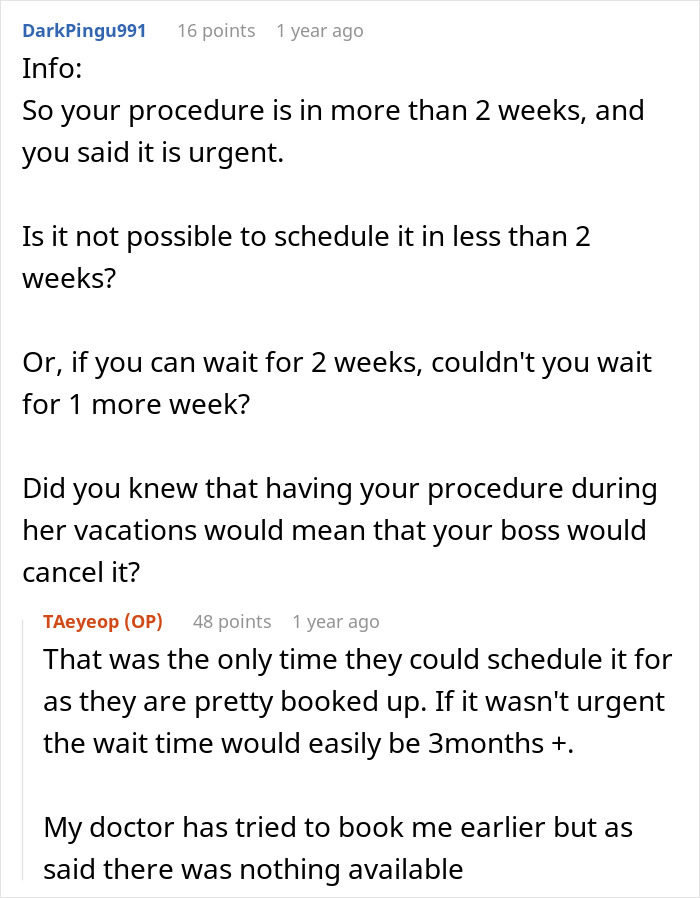
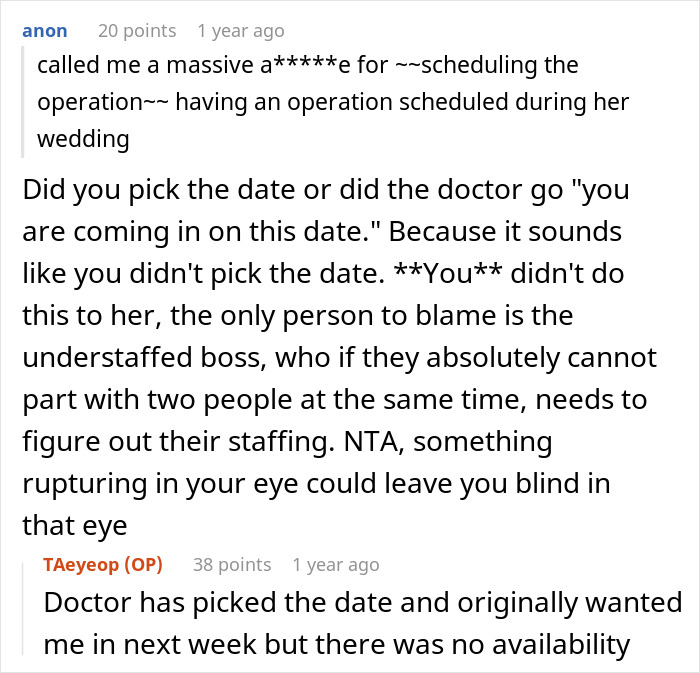
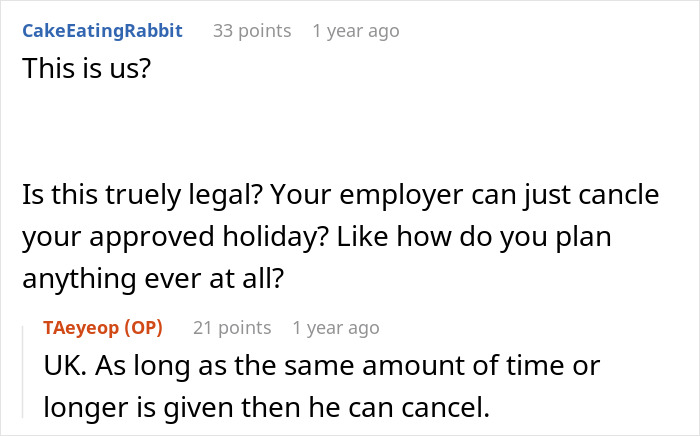

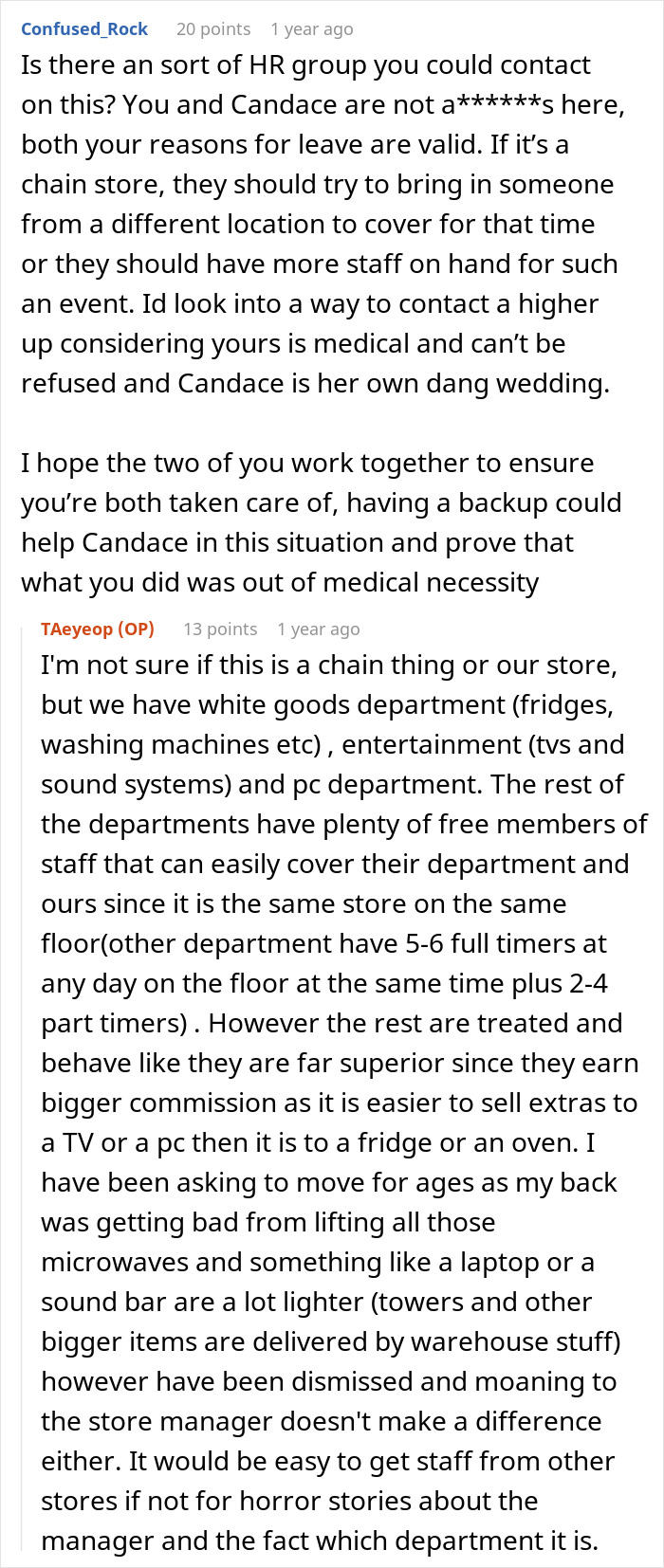
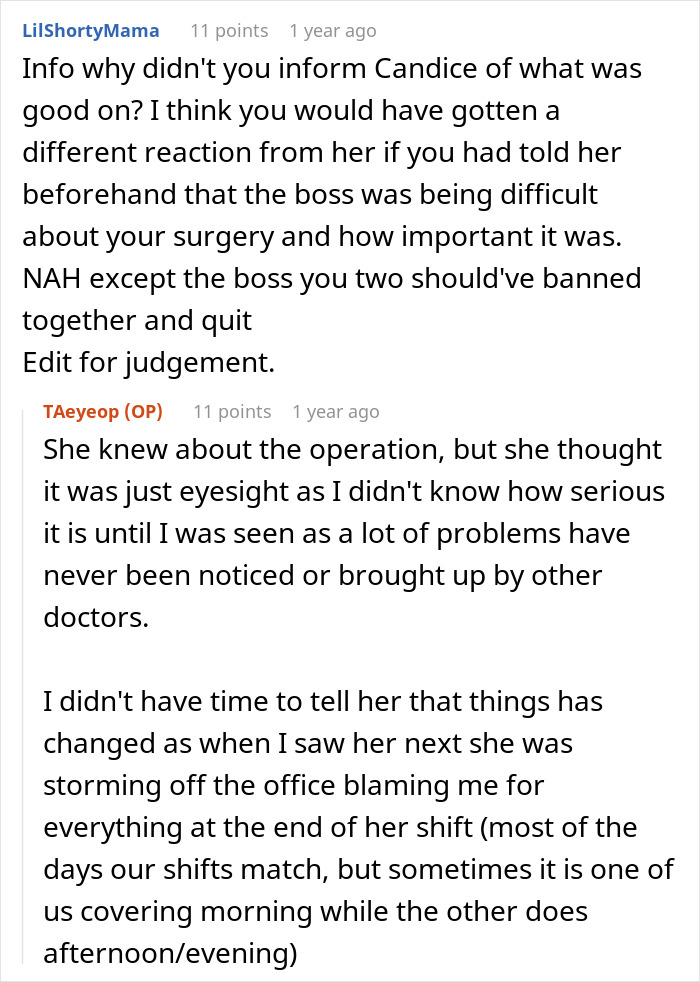
The majority of readers assured the employee that their boss was actually the person at fault here

